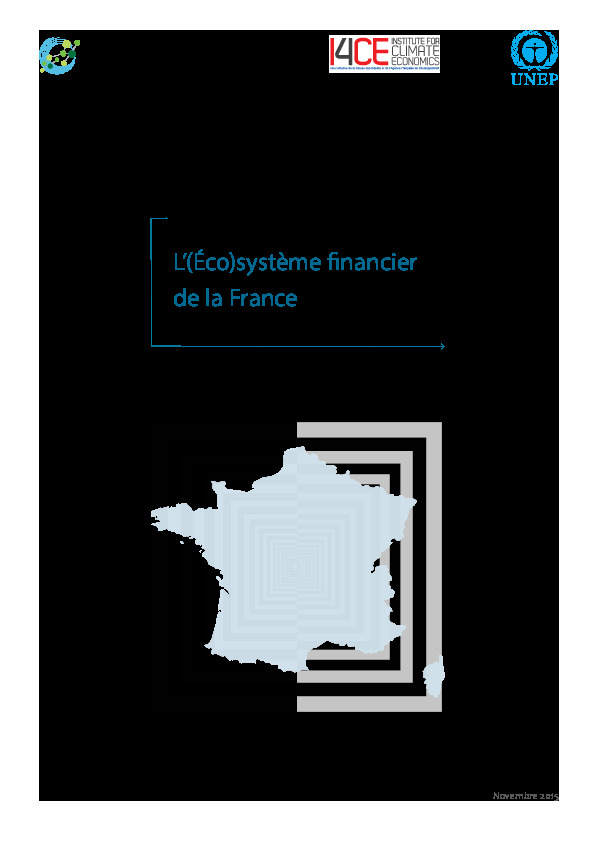France’s Financial (Eco)system – Improving the integration of sustainability factors
I4CE report for the UNEP Inquiry about the French experience on integrating sustainability in finance
The French case study presents lessons drawn from the French ongoing experience in improving the integration of sustainability issues that could be shared with other countries. It focuses on both the climate-related issues that have recently received significant attention (Article 173 of the 2015 Law on Energy Transition for Green Growth) and their place within the development of broader Environmental, Social and Governance (ESG) issues. The regulatory and actor-initiated dynamics that have shaped the last two decades have both led to the emergence of an ‘ecosystem’ of commercial, public and non-profit actors and experts involved in the appropriation and integration of sustainability issues across the sector.
